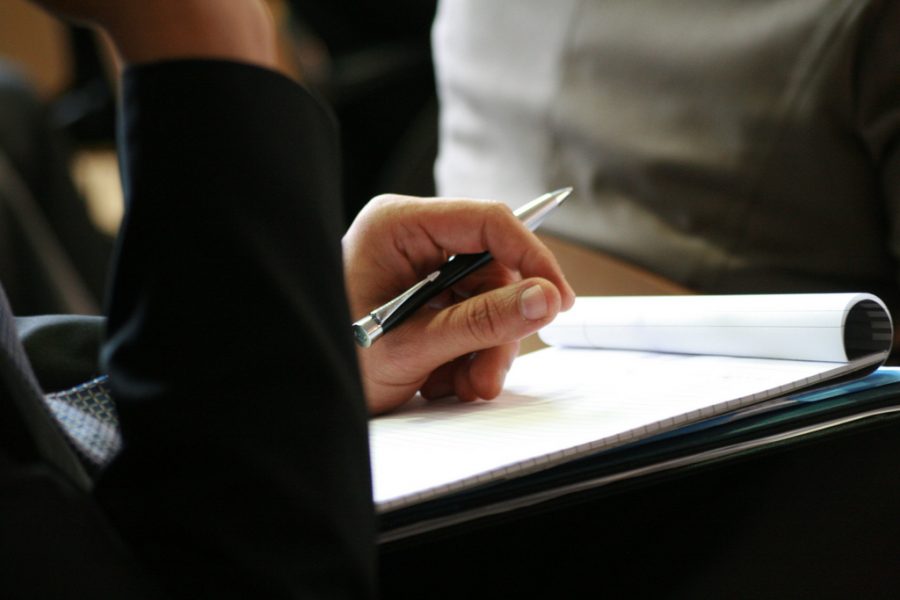
To all the people associated with Lafayette College:
We are each of us suddenly confronted with one of the most important questions of our lives: what will the election of Donald Trump to the presidency of the United States mean? We, the undersigned faculty members of the college, are deeply concerned that our country now faces an unprecedented threat, and that without organized collaboration and resistance this election may lead America toward the dawn of a dangerous and institutionalized form of reactionary authoritarianism.
The campaign alone has already mobilized and legitimized long-standing politics based on white supremacy, nativism and patriarchy, resulting in physical and verbal attacks against: people of color, Muslims, Latinos, immigrants, the disabled, LGBTQ people, Jews and all women within and beyond these overlapping groups. In electing Donald Trump, citizens of our country now face a clear and present danger, as this movement will soon gain access to the full power of the federal government.
There remains the possibility that a Trump presidency will be radically different from the one promised in his campaign. We hope this is the case. Yet while we cannot know the future, we do know that we face an incredible asymmetry of risk. If this is a false dawn of fascism, organizing to educate ourselves and preparing to resist it can only lead to a more effective movement to advance democracy and human freedom. If it be a true dawn, we cannot afford to “wait and see.” We must be ready to resist before the promised mass round-ups, internment and expulsion of our Muslim and undocumented sisters and brothers begin—exponentially worsening what has already been, under the outgoing administration, the largest wave of deportations in American history. If we wait to act until police are ordered to violently end all protests and occupy our “inner cities” while the hard-fought gains for LGBTQ, women’s and workers’ rights are rolled back, it will be too late. One cannot face these grave threats alone and unprepared.
We believe that this election must motivate those of us committed to civil rights and social justice to find new ways to communicate, criticize, educate and, most significantly, build spaces for collective action. We pledge to create opportunities, such as teach-ins, to: discuss and evaluate how and why this election happened; analyze the meaning and gravity of the divided state of our campus and our nation; confront the history of racism and colonialism in the United States; study freedom struggles and train ourselves in strategies of resistance; and, perhaps most importantly, denounce and organize opposition to racism, misogyny, homophobia and xenophobia.
While we recognize that white supremacy has been an organizing principle of American life since the founding of the United States, we know that this, too, is true: the political traditions forged through resistance to and rejection of racism, patriarchy and capitalist exploitation are equally American. We stand in solidarity with those committed to freedom for all. We are dedicated to ensuring that Lafayette College actively denounces and rejects racism, bigotry, misogyny and any kind of discrimination, without hesitation.
We, the undersigned, will host an open meeting to discuss how and when and where organization should take place on Monday, Nov. 21 at 7 p.m. in Farinon. We invite you all to participate.
Signed,
Mary Armstrong, English and Women’s and Gender Studies
Hollis Ashby, Williams Center for the Arts
Susan Averett, Economics
Kylie Bailin, Library
Paul Barclay, Asian Studies and History
Susan Basow, Psychology
Steven Belletto, English
Ethan Berkove, Mathematics
William Bissell, Anthropology and Sociology
Robert Blunt, Religious Studies and Africana Studies
Deborah Byrd, English
Tamara Carley, Geology and Environmental Geosciences
Jessica Carr, Religious Studies
Benjamin Cohen, Engineering Studies
Patricia Donahue, English
Sidney Donnell, Spanish
Anna Edlund, Biology
Katalin Fabian, Government and Law
Bianca Falbo, English
Megan Fernandes, English
Ingrid Furniss, Art and Asian Studies
Nestor Gil, Art
Peter Gildenhuys, Philosophy
Tara Gilligan, Women’s and Gender Studies
Alessandro Giovannelli, Philosophy
Rachel Goshgarian, History
Katherine Groo, Film and Media Studies
David Hogenboom, Physics
Ben Jahre, Library
Mary Jo Lodge, Theater
Jennifer Kelly, Music
Chawne Kimber, Mathematics
Rebecca Kissane, Anthropology and Sociology
Tim Laquintano, English
Caroline Lee, Anthropology and Sociology
Christopher Lee, History
Ana Ramirez Luhrs, Library
Owen McLeod, Philosophy
Lawrence L. Malinconico, Jr., Geology and Environmental Geosciences
Meghan Masto, Philosophy
Joshua Miller, Government and Law
Sarah Morris, Library
Pam Murray, Library
Lauren Myers, Psychology
Michael Nees, Psychology
Julia Nicodemus, Engineering Studies
Charlotte Nunes, Library
Alix Ohlin, English and Film and Media Studies
Christopher Phillips, English
Rebekah Pite, History
Elaine Reynolds, Biology and Neuroscience
Juan Rojo, Spanish
Carrie Rohman, English
Robert Root, Mathematics
Deborah Rosen, History
Chris Ruebeck, Economics
Mónica Salas-Landa, Anthropology and Sociology
Diane Windham Shaw, Library
Scott Shelley, Physics
Joseph Shieber, Philosophy
Nandini Sikand, Film and Media Studies
Helena Silverstein, Government and Law
Karina Skvirsky, Art
Andy Smith, Film and Media Studies
Andrea Smith, Anthropology and Sociology
Joshua Smith, Mechanical Engineering
Julie Smith, Economics
Hannah Stewart-Gambino, Government and Law and International Affairs
Elaine Stromber, Library
Jenn Stroud Rossmann, Mechanical Engineering
David Sunderlin, Geology and Environmental Geosciences
Jennifer Talarico, Psychology
Lorenzo Traldi, Mathematics
Michelle Tomaszycki, Neuroscience and Psychology
Neha Vora, Anthropology and Sociology
Walter Wadiak, English
Angelika von Wahl, International Affairs
Susan Wenze, Psychology
Suzanne Westfall, English
Wendy Wilson-Fall, Africana Studies
Bonnie M. Winfield, Center for Community Engagement
Brent Utter, Mechanical Engineering
Lijuan Xu, Library
Li Yang, Foreign Languages and Literatures
Jeremy Zallen, History